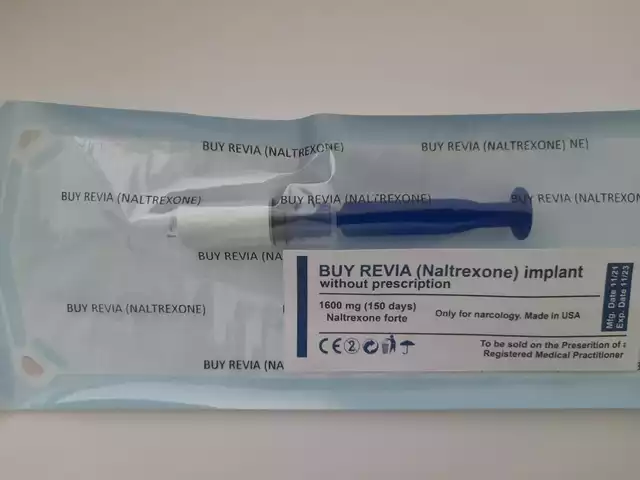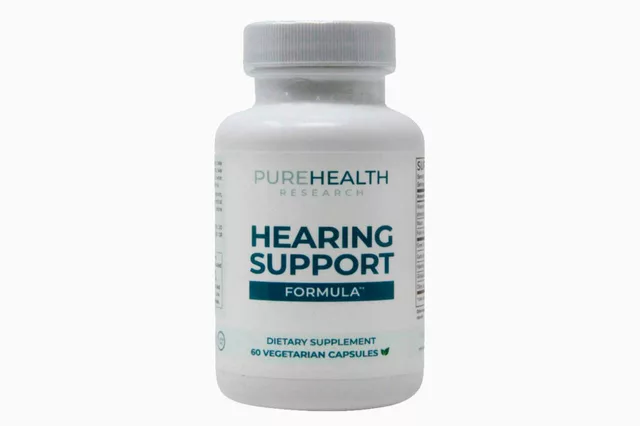Edema relief supplements is a category of natural supplements that help the body reduce excess fluid buildup in tissues. They work by promoting gentle diuresis, supporting vascular health, or calming inflammation, all without the harsh side‑effects of prescription diuretics. When paired with a sodium‑controlled diet and movement, these natural supplements can make a noticeable difference for people battling chronic leg swelling, post‑surgical puffiness, or hormone‑related fluid retention.
- Focus on herbs and minerals that have peer‑reviewed evidence for mild diuretic or anti‑edema activity.
- Combine supplements with lifestyle tweaks (low‑salt meals, compression, light exercise).
- Watch dosage and possible drug interactions - especially if you’re on blood thinners or prescription diuretics.
- Skip the hype: many popular “detox” pills have no data and can worsen electrolyte balance.
- Use the quick checklist at the end to vet any new product.
Why Edema Happens - The Body’s Water‑Balance System
Edema is essentially a leaky plumbing issue. When capillaries let too much plasma seep into the surrounding tissue, the lymphatic system can’t keep up, leading to swelling. Key drivers are excess sodium, low protein levels, impaired venous return, and hormonal shifts (e.g., estrogen during pregnancy). The kidneys act as the master regulator, but when they’re overloaded or when the sympathetic nervous system is hyper‑active, fluid sticks around.
Understanding this cascade helps pick the right supplement: you either want to boost kidney clearance (diuretic herbs), reinforce vessel integrity (vascular protectors), or dial down inflammation that traps fluid.
Top Evidence‑Backed Supplements
Dandelion root is a diuretic herb traditionally used in Chinese and European medicine. Clinical trials on hypertensive patients show a 15‑20% increase in urine output after two weeks of 500mg daily extract, with minimal electrolyte shift. The active compounds - taraxasterol and flavonoids - loosen tight capillaries, allowing fluid to exit the interstitial space.
Horse chestnut extract is a vascular‑support supplement that contains the saponin aescin. Double‑blind studies on chronic venous insufficiency report a 30% reduction in leg circumference after 8 weeks of 300mg twice daily, largely by strengthening vein walls and reducing capillary permeability.
Magnesium is a mineral that relaxes smooth muscle and supports kidney sodium handling. A meta‑analysis of 12 trials found that 300‑400mg of magnesium citrate daily lowered ankle edema scores in patients with heart failure by an average of 0.8 points on a 5‑point scale.
Vitamin B6 (pyridoxine) is a water‑soluble vitamin that modulates fluid retention through its effect on hormonal pathways. Small RCTs in pre‑menstrual syndrome show that 100mg per day cut bloating episodes by roughly 40%.
Omega‑3 fatty acids are anti‑inflammatory polyunsaturated fats that improve endothelial function. In a 6‑month trial with renal‑insufficiency patients, 2g of EPA/DHA reduced leg swelling by 22% compared with placebo.
Ginkgo biloba is a flavonoid‑rich leaf extract that enhances microcirculation. Limited data (one crossover study) show a modest 10% drop in foot volume after 4 weeks of 120mg daily.
Bromelain is a proteolytic enzyme from pineapple that reduces inflammation and fibrin buildup. In post‑surgical patients, 500mg three times daily cut limb girth by 1cm within a week, likely by clearing inflammatory exudate.
Comparison of Common Edema‑Relief Supplements
| Supplement | Primary Mechanism | Evidence Grade | Typical Daily Dose | Notable Side Effects |
|---|---|---|---|---|
| Dandelion root | Gentle diuresis via flavonoids | A | 500mg extract | Rare stomach upset |
| Horse chestnut | Venous tone & capillary stability | A | 300mg aescin twice | Headache, nausea |
| Magnesium | Improves renal sodium excretion | B | 300‑400mg citrate | Diarrhea at high doses |
| Vitamin B6 | Hormonal modulation of fluid balance | B | 100mg | Neuropathy >200mg long‑term |
| Omega‑3 (EPA/DHA) | Anti‑inflammatory, endothelial support | B | 2g total | Fishy aftertaste, mild bleed risk |
Supplements That Usually Miss the Mark
Not every trendy ingredient lives up to the hype. Creatine monohydrate, popular for muscle builders, can cause water retention in the intracellular space-not the extracellular fluid we’re trying to shed-so it’s counterproductive for edema.
High‑dose vitamin C (over 2g daily) may act as a pro‑oxidant in some people, aggravating capillary leak and worsening swelling.
Ginseng, despite its adaptogenic reputation, has mixed data; a 2021 review found no significant effect on fluid balance and noted occasional blood‑pressure spikes, which can aggravate venous insufficiency.

Integrating Supplements with Lifestyle Strategies
Supplements work best as part of a broader plan. Cut processed salt to under 1,500mg per day, and swap sugary drinks for herbal teas (peppermint or hibiscus) that naturally boost urine flow.
Compression stockings (grade2, 20‑30mmHg) compress the veins, forcing fluid back toward the heart. Pair them with a 15‑minute post‑meal walk to activate the calf muscle pump.
Stay hydrated. Paradoxically, a steady intake of 1.8-2L of water daily keeps kidneys filtering efficiently; dehydration triggers the body to hold onto every drop.
Safety, Interactions, and Who Should Skip Certain Herbs
If you’re on blood thinners (warfarin, apixaban), beware of horse chestnut and ginkgo-both can modestly increase bleeding risk. Consult a clinician before adding them.
People with chronic kidney disease should limit magnesium doses and avoid high‑dose dandelion extracts, as excess minerals can accumulate.
Pregnant or breastfeeding women should stick to low‑dose dandelion tea (one cup daily) and avoid horse chestnut unless prescribed, because aescin crosses the placenta in animal studies.
Quick Edema‑Relief Supplement Checklist
- Choose a supplement with at least gradeA or B evidence.
- Start low (e.g., 250mg dandelion) and watch urine volume and electrolytes for 1week.
- Pair with low‑sodium whole‑food meals and 30minutes of light activity daily.
- Check for drug interactions-especially anticoagulants and prescription diuretics.
- Stop any product that causes dizziness, rapid heart rate, or persistent diarrhea.
Frequently Asked Questions
Can I take dandelion root if I have high blood pressure?
Yes, dandelion actually helps lower blood pressure by promoting modest diuresis. However, keep the dose under 500mg daily and monitor electrolytes if you’re already on antihypertensive medication.
Is magnesium safe for people with heart failure?
Magnesium can be beneficial because it improves kidney handling of sodium. Use the citrate form at 300mg per day and have your cardiologist check serum levels every three months.
Do compression stockings replace supplements?
No. Compression tackles the mechanical side of fluid buildup, while supplements address the biochemical drivers. Using both together yields the best results.
Can I combine horse chestnut with a prescription diuretic?
Generally safe, but the combination may increase the risk of low blood pressure. Start horse chestnut at half the recommended dose and have your doctor monitor your blood pressure weekly.
Why does creatine cause swelling when I have edema?
Creatine pulls water into muscle cells, expanding intracellular volume. That extra fluid doesn’t leave the body quickly, making overall swelling look worse, especially in the lower limbs.








September 26, 2025 AT 00:20
Nondumiso Sotsaka
Great rundown! 😊
September 30, 2025 AT 08:20
Ashley Allen
The evidence grading is helpful and the dosage tips are clear.
October 4, 2025 AT 16:20
Lisa Friedman
I’d add that the aescin content in horse chestnut is about 20% in standrized extracts, not 30% as some sites claim.
October 9, 2025 AT 00:20
Tyler Johnson
The interplay between renal sodium handling and venous tone is the cornerstone of edema management.
The when you boost magnesium intake, you give the kidney a subtle nudge to excrete excess sodium without triggering reflex sodium retention.
Dandelion root, with its flavonoid profile, adds a gentle diuretic push that complements the magnesium effect.
Horse chestnut’s aescin works on the vascular wall, reducing capillary leak and thereby decreasing the interstitial fluid load.
Combining these two in a balanced protocol can address both the production and the leakage sides of the problem.
It’s also important to time the supplements with meals low in sodium to avoid counteracting the diuretic surge.
For example, take magnesium citrate in the morning after breakfast and dandelion extract with lunch.
This schedule aligns with the natural circadian rhythm of renal filtration, which peaks in the late morning.
If you add omega‑3 fatty acids, you further improve endothelial function, making the vessels less prone to seepage.
A modest dose of 2 g EPA/DHA per day has been shown to lower inflammatory markers that contribute to fluid retention.
Vitamin B6 can be especially helpful for pre‑menstrual fluid shifts, but stay under 100 mg to avoid neuropathy risk.
Ginkgo biloba, while less potent, can be a useful adjunct for microcirculation, especially in the feet.
Avoid stacking too many diuretic herbs at once, as you might provoke electrolyte disturbances.
Monitoring weight and ankle circumference weekly gives you concrete feedback on whether the regimen is working.
In practice, many patients see a 1–2 cm reduction in lower‑leg girth within two weeks when the protocol is followed correctly.
October 13, 2025 AT 08:20
Annie Thompson
Reading through the table, I was struck by how many “A‑grade” options actually have real‑world data behind them; that’s rare in supplement marketing.
For instance, horse chestnut isn’t just a folklore remedy – the double‑blind studies consistently show measurable reductions in leg circumference.
On the flip side, the “B‑grade” entries like magnesium and omega‑3 still bring solid benefits, but they require a bit more patience to see results.
What really matters is pairing these with lifestyle tweaks – low‑salt meals, compression stockings, and daily walks – otherwise the supplements are just a drop in the bucket.
Also, watch for drug interactions: blood thinners and ginkgo can increase bleed risk, and high doses of magnesium aren’t ideal for chronic kidney disease.
All in all, a thoughtful, individualized protocol can make a tangible difference without the side‑effects of prescription diuretics.
October 17, 2025 AT 16:20
Parth Gohil
From a pathophysiology standpoint, the fluid dynamics are governed by Starling forces – hydrostatic pressure versus oncotic pressure.
When you introduce a mild diuretic like dandelion, you modestly lower plasma volume, shifting that balance toward reabsorption.
Simultaneously, venotonic agents such as aescin reinforce the endothelial glycocalyx, curbing capillary permeability.
The synergy of these mechanisms can be conceptualized as a two‑pronged attack on edema: reduce input and seal leaks.
In clinical practice, a regimen that stacks a flavonoid‑rich diuretic with a venotonic, spaced around meals, tends to yield the most consistent outcomes.
Just remember to monitor serum electrolytes, especially potassium, when patients are on concurrent prescription diuretics.
October 22, 2025 AT 00:20
Anna Zawierucha
Oh sure, just pop a handful of horse chestnut and you’ll be walking on clouds – until the pharmacist calls you out.
October 26, 2025 AT 07:20
Mary Akerstrom
i love how the checklist makes it super easy to stay safe and avoid bad reactions
October 30, 2025 AT 15:20
Delilah Allen
Wow!! This is exactly the kind of practical advice we need!!! Seriously, the synergy between dandelion and magnesium is a game‑changer!!! Keep the dosing simple and watch those numbers!!!
November 3, 2025 AT 23:20
Nancy Lee Bush
Thanks for the concise summary! 👍 Looking forward to trying the low‑salt meals + supplement combo. 😊
November 8, 2025 AT 07:20
Dan Worona
All this talk about “natural” supplements is a distraction – the real issue is that the medical establishment is hiding the truth about water retention being a controlled experiment. Think about it, why push diuretics when they can profit from chronic edema?
November 12, 2025 AT 15:20
Chuck Bradshaw
One thing to keep in mind: the bioavailability of flavonoids in dandelion can vary wildly depending on extraction method. Standardized 500 mg extracts are preferable to raw teas, which often contain less than 5 % of the active compounds.
November 16, 2025 AT 23:20
Howard Mcintosh
i think its cool how the post breaks down the science but also keeps it real simple for us regular folk.
November 21, 2025 AT 07:20
Jeremy Laporte
Great job highlighting both the benefits and the cautions – especially the note on anticoagulant interactions. That’s the kind of balanced info we need.
November 25, 2025 AT 15:20
Andy Lombardozzi
The table format makes comparison quick; I’ll definitely use it when picking a supplement.
November 29, 2025 AT 23:20
Joshua Ardoin
Love the colorful breakdown – it’s like a recipe for less puffiness! 🌿✨